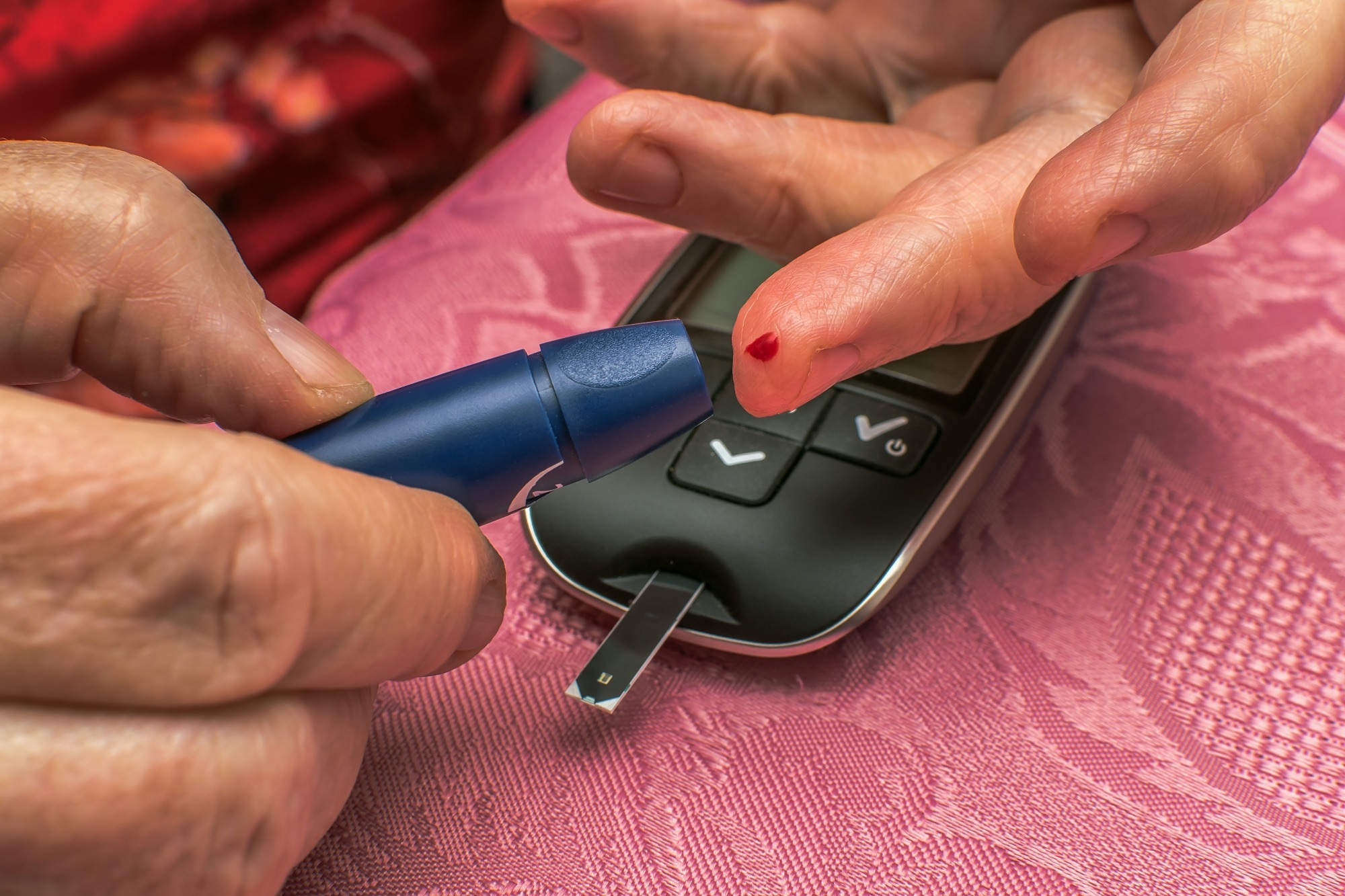Type 2 diabetes is one of the common comorbid conditions in COVID-19 patients and has been established as a determinant of clinical prognosis. Although severe acute respiratory syndrome coronavirus 2 (SARS-CoV-2) vaccines are effective against severe illness, diabetic patients may mount an inadequate response to vaccination. Therefore, effective antiviral therapeutics are necessary to mitigate adverse disease outcomes in type 2 diabetes patients with COVID-19.
Nirmatrelvir-ritonavir and molnupiravir are oral antivirals approved for non-hospitalized individuals with mild or moderate COVID-19, which are indicated for patients with risk factors for severe disease progression. Several pathophysiologic mechanisms in type 2 diabetes patients can be responsible for adverse COVID-19 outcomes. Further, anti-diabetic medications should be tested for effects on COVID-19 outcomes and could be considered when assessing antivirals in these patients.
 Study: Analysis of All-Cause Hospitalization and Death Among Nonhospitalized Patients With Type 2 Diabetes and SARS-CoV-2 Infection Treated With Molnupiravir or Nirmatrelvir-Ritonavir During the Omicron Wave in Hong Kong. Image Credit: andrekoehn / Shutterstock
Study: Analysis of All-Cause Hospitalization and Death Among Nonhospitalized Patients With Type 2 Diabetes and SARS-CoV-2 Infection Treated With Molnupiravir or Nirmatrelvir-Ritonavir During the Omicron Wave in Hong Kong. Image Credit: andrekoehn / Shutterstock
About the study
In the present study, researchers investigated the effectiveness of nirmatrelvir-ritonavir and molnupiravir in a population-based cohort of non-hospitalized type 2 diabetes patients infected with SARS-CoV-2 during the Omicron period in Hong Kong. They included type 2 diabetes patients with COVID-19 between February and October 2022.
SARS-CoV-2 infection was confirmed by a positive rapid antigen or reverse-transcription polymerase chain reaction (RT-PCR) test result. Antivirals were recommended for patients aged 60 or older with mild symptoms and risk factors for severe disease within five days of symptom onset. Patients received either nirmatrelvir-ritonavir or molnupiravir.
The date of symptom onset or positive test result was defined as the index date. Controls were patients not receiving the specified antivirals. Subjects were followed up until outcome occurrence, a crossover of antiviral treatments, death, or the completion of the observational period, whichever was earlier.
Data on baseline characteristics, such as sex, age, vaccination status, comorbidities, and the date of infection, were obtained. The study’s outcomes were all-cause hospitalization or mortality and disease progression. Antiviral-treated patients and controls were propensity-score matched based on sex, age, Charlson comorbidity index, medication use, vaccination status, and pre-existing conditions.
Cox regression was used to estimate outcomes between antiviral-treated patients and controls. Sub-group analyses explored interactions by sex, age, vaccination status, baseline insulin usage, and the presence of diabetic complications or kidney disease. Additionally, the team carried out several sensitivity analyses.
Findings
The study included two groups of patients – 921 molnupiravir recipients matched to 921 controls and 793 patients who received nirmatrelvir-ritonavir matched to 793 controls. Most patients were aged 65 or older. A majority of patients followed the recommended five-day antiviral treatment regimen. Hypertension was the most common comorbidity. No patient had a prior diagnosis of COVID-19.
Up to 37% of patients used insulin, and nearly 30% had diabetic complications. Baseline characteristics were well-balanced after matching. Molnupiravir recipients were more likely to be older, insulin users, had more comorbidities and diabetic complications and were less likely to be vaccinated or boosted.
Nirmatrelvir-ritonavir and molnupiravir recipients were followed up for a median of 85 and 102 days, respectively. In the molnupiravir group, the cumulative incidence rate of all-cause hospitalization or mortality was 1024.9 and 1952.4 per 100,000 person-days among antiviral recipients and matched controls, respectively.
In the nirmatrelvir-ritonavir group, the cumulative incidence rate was 695.8 and 1131.2 per 100,000 person-days among antiviral recipients and matched controls, respectively. Antiviral recipients had lower risks of all-cause hospitalization and mortality than controls. Additionally, only molnupiravir use was significantly associated with a lower risk of in-hospital disease progression.
Sub-group analyses yielded results comparable to the primary analysis, irrespective of sex, age, insulin usage, and vaccination status. The treatment effect of nirmatrelvir-ritonavir for younger and older age groups was not compared due to a lower incidence of outcomes in younger patients. All sensitivity analyses reproduced similar findings.
Conclusions
To conclude, the researchers assessed the effectiveness of nirmatrelvir-ritonavir or molnupiravir use among type 2 diabetes patients infected with SARS-CoV-2. Antiviral use was associated with a 29% decrease in all-cause hospitalization and mortality relative to controls who did not receive these antivirals. Moreover, antiviral treatment reduced the risk of in-hospital progression to severe illness, albeit nirmatrelvir-ritonavir use did not reach statistical significance. Overall, the findings corroborate the effectiveness of these oral antiviral drugs in outpatients.